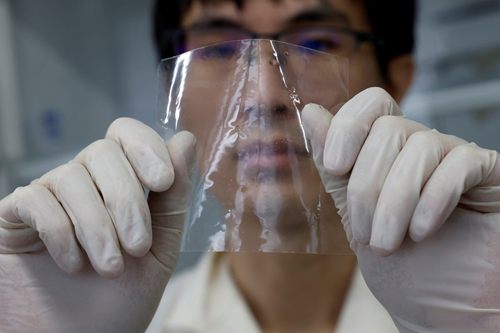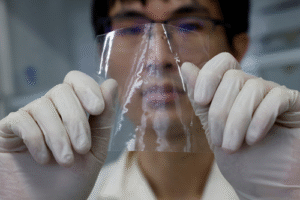The fight against global plastic pollution has gained a powerful new weapon, thanks to a pioneering breakthrough rooted in Japan. Researchers have successfully engineered a highly efficient enzyme capable of rapidly and sustainably breaking down polyethylene terephthalate (PET)—the ubiquitous plastic found in soda bottles and synthetic fabrics.
This innovation, often referred to as a “super-enzyme,” stems from the accidental 2016 discovery of a naturally occurring bacteria (Ideonella sakaiensis) in a Japanese waste dump that had evolved the ability to “eat” plastic.
Scientists from institutions including Shizuoka University, in collaboration with companies like Kirin Holdings Co., and international partners, have since worked to optimize the naturally-occurring enzyme, called PETase.
The engineered enzymes, such as the variant PET2-21M, now boast significantly enhanced catalytic activity compared to their natural predecessor. Key aspects of this breakthrough include:
Rapid Breakdown: The engineered enzymes can depolymerize up to 95% of commercial bottle-grade PET powder within just 24 hours at moderate temperatures.
Targeting Blends: Another variant, PET2-14M-6Hot, shows superior capacity for processing complex blended fibers (like PET/cotton), which are notoriously difficult to recycle using conventional methods.
Circular Economy Potential: By breaking down PET back into its original base components, the technology enables full, closed-loop recycling. This means old plastic bottles can be turned into new plastic bottles, dramatically reducing the need for new oil-based plastic production.
This development offers a promising, energy-efficient path for a circular plastics economy, accelerating industrial-scale recycling and offering a viable solution to the mounting challenge of plastic waste.






